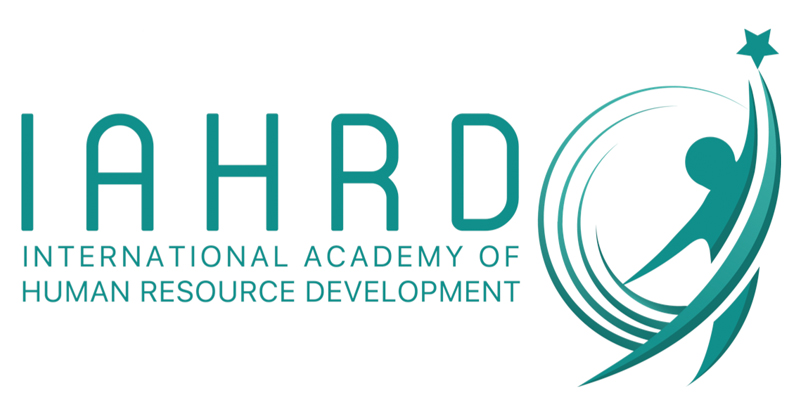
Literacy of IT Project Management
Literacy of IT Project Management
Introduction:
This course is introduced to you by the International Academy of Human Resource Development (IAHRD). Our courses are designed by professionals with a long experience in the field.you should understand that this is not a software engineering course but it will provide the basic knowledge required to manage a software project from initial requirements analysis to final implementation. The importance of IT Project management comes from the complications that might arise in the project execution for the first time that might affect the project likelihood of success. The course will discuss project scope and integration, time and cost estimating, risk management , HR and project quality management , project close-out , other advanced topics and conclusion. As Colin Powell said 'Success is the result of perfection, hard work, learning from failure, loyalty, and persistence.'
Objectives:
After finishing this course participants will be able to:
- Acquire key IT project management skills and be able to breakdown the activities and milestones of the phases of the project.
- Foresee potential risk , become a proactive rather than reactive.
- Get the correct requirements from the user and appreciate the importance of doing so.
- Use different prototyping techniques.
- Define and forecast the needed activities , duration and budget of a project.
- Overcome the constraints of time, cost and quality.
- Use automated project management tools that assist in project planning and control.
- Actively control a project instead of reacting to crises.
- Acknowledge the importance of quality assurance and how it ensures quality in your project.
- Recruit a team for the project , assign responsibilities, lead and inspire the team to achieve the short-term and long-term objectives.
- Deliver customer satisfaction and increase their loyalty.
Content:
Module 1:
- Project management institute.
- Project management literacy.
- Project appraisal.
- Project
- Project scope management.
- Life cycles.
- Reap correct requirements.
- Project initiation
- Project integration management.
- The project development plan.
- Work Breakdown Structure (WBS).
- Use of Microsoft Project software.
Module 2 :
- Generic estimating techniques.
- Software estimating techniques.
- Project scheduling, PERT and Critical Path Methods (CPM).
- Precedence relationships.
- Resource usage and leveling.
- Risk identification methods.
- Risk analysis and responding.
- Risk monitoring.
- Contingency planning and management reserves.
Module 3:
- Procurement/Contract planning.
- Proposal Solicitation/Contract types.
- Evaluating suppliers.
- Integrating Scope/Time and cost control.
- Project monitoring.
- Evaluating progress using earned value.
- Handling scope changes.
- Change control.
- Project meetings and reports.
Module 4:
- Quality planning, quality assurance and quality control.
- Key principles of quality management.
- Quality standards – ISO 9000.
- SEI Capability Maturity Model
- Project organizations process.
- Building the project team.
- Team dynamics.
- Conflicts management.
- Project manager responsibilities and skills.
- Motivating the project team.
Module 5:
- Project methodologies.
- Integration of processes.
- Configuration management.
- Stakeholder management.
- Project closeout.
- The importance of cash flow.
- Multi-Project management.
- Critical chain scheduling.
Who Should Attend?
- Project Managers
- Technical Leaders
- Clients
- Team members
- IT system users and anyone involved in an information technology project.
- Non-technical people who find themselves responsible for an IT project.
- Interested participants in topics related to IT or projects.
times [ London ]
| from | to | price $ | venue | actions |
|---|---|---|---|---|
| 2025-02-03 | 2025-2-7 | 4,500 | London | join enquire |
| 2025-02-10 | 2025-2-14 | 4,500 | London | join enquire |
| 2025-02-17 | 2025-2-21 | 4,500 | London | join enquire |
| 2025-02-24 | 2025-2-28 | 4,500 | London | join enquire |
| 2025-03-03 | 2025-3-7 | 4,500 | London | join enquire |
| 2025-03-10 | 2025-3-14 | 4,500 | London | join enquire |
| 2025-03-17 | 2025-3-21 | 4,500 | London | join enquire |
| 2025-03-24 | 2025-3-28 | 4,500 | London | join enquire |
| 2025-03-31 | 2025-4-4 | 4,500 | London | join enquire |
| 2025-04-07 | 2025-4-11 | 4,500 | London | join enquire |
| 2025-04-14 | 2025-4-18 | 4,500 | London | join enquire |
| 2025-04-21 | 2025-4-25 | 4,500 | London | join enquire |
| 2025-04-28 | 2025-5-2 | 4,500 | London | join enquire |
| 2025-05-05 | 2025-5-9 | 4,500 | London | join enquire |
| 2025-05-12 | 2025-5-16 | 4,500 | London | join enquire |
| 2025-05-19 | 2025-5-23 | 4,500 | London | join enquire |
| 2025-05-26 | 2025-5-30 | 4,500 | London | join enquire |
| 2025-06-02 | 2025-6-6 | 4,500 | London | join enquire |
| 2025-06-09 | 2025-6-13 | 4,500 | London | join enquire |
| 2025-06-16 | 2025-6-20 | 4,500 | London | join enquire |
| 2025-06-23 | 2025-6-27 | 4,500 | London | join enquire |
| 2025-06-30 | 2025-7-4 | 4,500 | London | join enquire |
| 2025-07-07 | 2025-7-11 | 4,500 | London | join enquire |
| 2025-07-14 | 2025-7-18 | 4,500 | London | join enquire |
| 2025-07-21 | 2025-7-25 | 4,500 | London | join enquire |
| 2025-07-28 | 2025-8-1 | 4,500 | London | join enquire |
| 2025-08-04 | 2025-8-8 | 4,500 | London | join enquire |
| 2025-08-11 | 2025-8-15 | 4,500 | London | join enquire |
| 2025-08-18 | 2025-8-22 | 4,500 | London | join enquire |
| 2025-08-25 | 2025-8-29 | 4,500 | London | join enquire |
| 2025-09-01 | 2025-9-5 | 4,500 | London | join enquire |
| 2025-09-08 | 2025-9-12 | 4,500 | London | join enquire |
| 2025-09-15 | 2025-9-19 | 4,500 | London | join enquire |
| 2025-09-22 | 2025-9-26 | 4,500 | London | join enquire |
| 2025-09-29 | 2025-10-3 | 4,500 | London | join enquire |
| 2025-10-06 | 2025-10-10 | 4,500 | London | join enquire |
| 2025-10-13 | 2025-10-17 | 4,500 | London | join enquire |
| 2025-10-20 | 2025-10-24 | 4,500 | London | join enquire |
| 2025-10-27 | 2025-10-31 | 4,500 | London | join enquire |
| 2025-11-03 | 2025-11-7 | 4,500 | London | join enquire |
| 2025-11-10 | 2025-11-14 | 4,500 | London | join enquire |
| 2025-11-17 | 2025-11-21 | 4,500 | London | join enquire |
| 2025-11-24 | 2025-11-28 | 4,500 | London | join enquire |
| 2025-12-01 | 2025-12-5 | 4,500 | London | join enquire |
| 2025-12-08 | 2025-12-12 | 4,500 | London | join enquire |
| 2025-12-15 | 2025-12-19 | 4,500 | London | join enquire |
| 2025-12-22 | 2025-12-26 | 4,500 | London | join enquire |
| 2025-12-29 | 2026-1-2 | 4,500 | London | join enquire |
